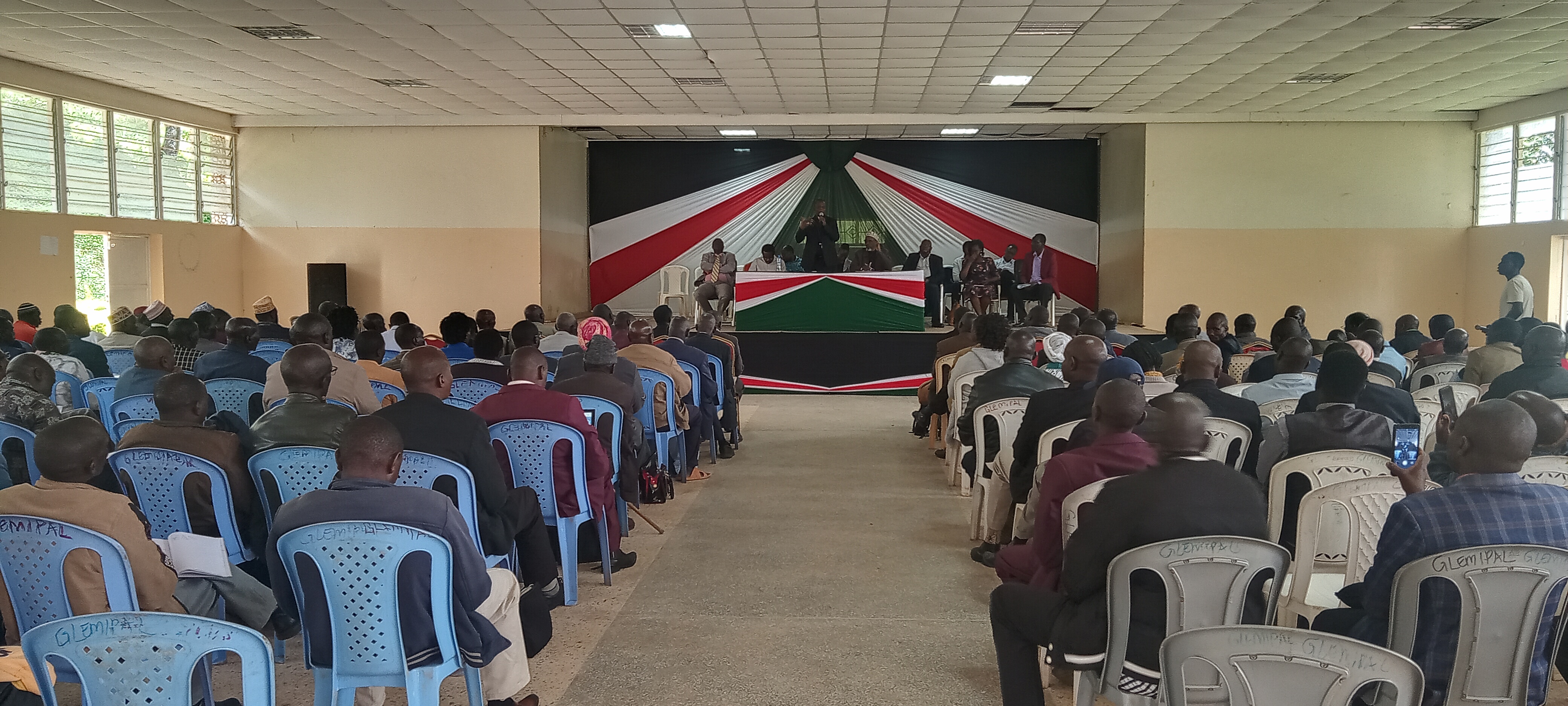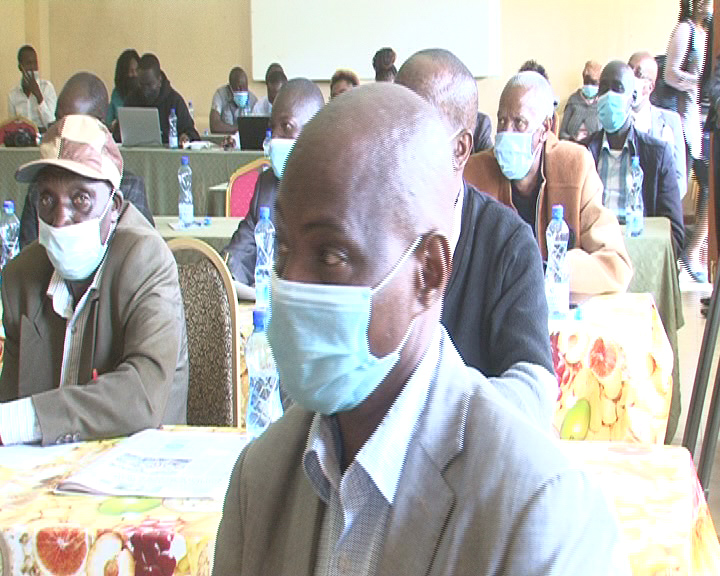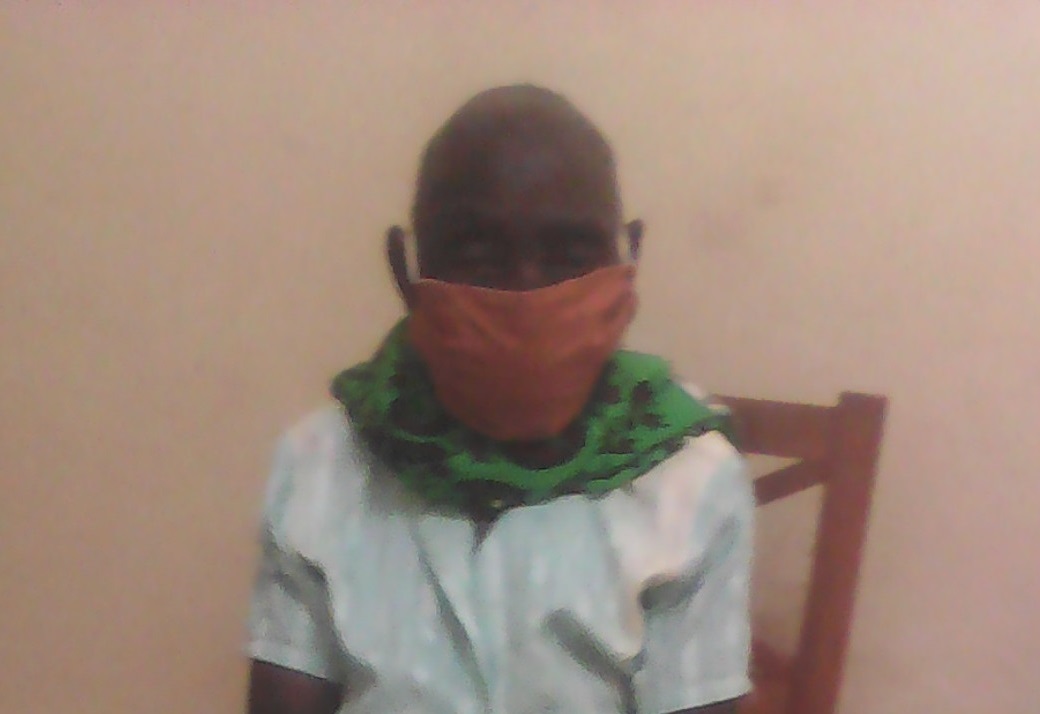Religious leaders in West Pokot County have appealed for self-regulation to help preserve the sanctity of religious activities.
In a memorandum presented to the presidential task force committee reviewing legal and regulatory frameworks governing religious organizations in Kenya, the various religious organizations argued that there were already umbrella bodies that have are being used to regulate religious activities.
They mentioned bodies such as the National Council of Churches of Kenya (NCCK) and Evangelical Alliance of Kenya (EAK) as some of the umbrella religious bodies that have been at the forefront of regulating religious activities in the country.
“Some of us found umbrella bodies such as NCCK already in existence and ours was just to join in. There are some denominations that had difficulties in being registered and with the help of the umbrella bodies they were finally registered especially in Western Kenya and other areas,” said Retired Anglican Church of Kenya (ACK) Bishop Stephen Kewasis.
Speaking at Mtelo Hall in Kapenguria, Kewasis noted that the Pokot Community reveres the church and there have not been any cases of religious extremism witnessed unless someone comes from a different region with their own weird doctrinal teachings.
He regretted the unfortunate cases of religious extremism that have been witnessed in the country lately arguing that they should be thoroughly investigated and stringent measures taken against them.
Kewasis asked the task force members doing research to dig into the matter that was now threatening to make people to start doubting the activities of the religious community.
“Religious organisations and fellowships that we have in our country have been doing well and they have assisted a lot in changing people’s mindset of the people for socio-economic development. We want those few negative elements mapped out and their weird practices unearthed,” said the retired Bishop.
He called on the government to use its intelligence machinery and let the law take its course for those coming up with extreme doctrines that will bring disaster.
Rahman Bakari of the Supreme Council of Kenya Muslims (SUPKEM) in West Pokot said their organizational structure is watertight such that any cases of religious extremism are usually reported and dealt with accordingly.
Bakari said that SUPKEM recommends that all religious organizations establish doctrinal committees drawn from distinguished scholars to help in the monitoring of any religious teachings that may lead to the radicalization of their followers.
He mentioned that some religious leaders take advantage of the ignorance of their followers’ understanding of religion to pursue other ulterior motives.
There were mixed reactions on the academic qualifications of the religious leaders where some church ministers saying there are some remote areas within the county where peoples’ level of education is very low adding that recommending a minimum qualification for religious leadership to be a secondary school certificate would be discriminatory and deny residents the freedom of worship.
Bishop Ruth Lodinyo of Associated Christian Churches of Kenya (ACCK) said where she administers in North Pokot, most of the evangelists lack basic education but they have been doing a commendable job which has reformed so many warriors who had been security threats.
“These lay preachers have been so fundamental in preaching to the locals, majority of who can only listen to people of their level. The majority of them hardly have a secondary school education,” said Bishop Lodinyo.
Lodinyo called for the strengthening of the umbrella bodies to help in the regulation of upcoming churches and faith-based organizations.
“We need these regulatory bodies to be felt from the national up to the ward level for better representation of all religious organizations, especially in remote areas,” she suggested.
The task force team led by Kisumu Arch-Diocese Catholic Church Arch-Bishop Maurice Muhatia said the views captured will be integrated into the frameworks and regulations that are being collected from all 47 counties.
West Pokot County Commissioner Apollo Okello asked the religious community and all other stakeholders to work closely with the government in informing relevant authorities in case they detect any wayward religious doctrines in the community.
“Our security teams are doing their best but everyone should also play their part by informing authorities whenever they come across cases of religious extremism and radicalization,” advised the CC.
By Richard Muhambe and Maurice Osore




